It’s been an incredible year and a half for Tau Cross frontman Rob Miller, a period that has seen the man cancelled by his bandmates and record label only to return a stronger and wiser man with a new version of the band’s third album, Messengers Of Deception, and a more resolute sense of purpose than ever before. We sat down for an in depth chat about the record, the band, and some of the thoughts and beliefs that fuel the album’s subject matter…
Even in today’s world, where bands seem to leak a new ‘single’ every two weeks or so before an album comes out, they still manage to maintain an element of surprise that’s achieved on release day. How do you feel about losing that, given that it has been taken away thanks to Relapse’s ‘soft’ release of Messengers of Deception last year – some people will have heard much of this album already? “It’s a completely different album. Songs have been rewritten, the production is very different. Generally speaking the only people that heard the ‘Relapse version’ of the album were journalists. So it hadn’t got very far by the time Relapse pulled the album. What is interesting is some vinyl managed to slip through the net. I was told by Relapse that they had destroyed everything. One hundred per cent. And then these boxes of vinyl started turning up at record fairs; so I think there’s probably a couple of dozen copies out there. And I saw one, and obviously these guys selling them had no idea. They were selling a double vinyl album for fourteen pounds! So I said ‘I’ll have that! – and you can close this fucking thing down now!’. They’re selling for six hundred dollars or something like that on Discogs now. Its a rarity, and it’s different. But I’m not bothered about it. I don’t think the first version lives up to this one at all. I’m really delighted with it, which I didn’t expect to be honest. Not blowing my own trumpet, but my mission was simply to go out and do this album in the best way that I could. If I could do that, it was at least saying ‘well, I’m not going to be cowed by the situation, or brow-beaten into a position’. Being a stubborn-minded bastard that’s all it was. But the fact that it has come out better is the icing on the cake for me”.
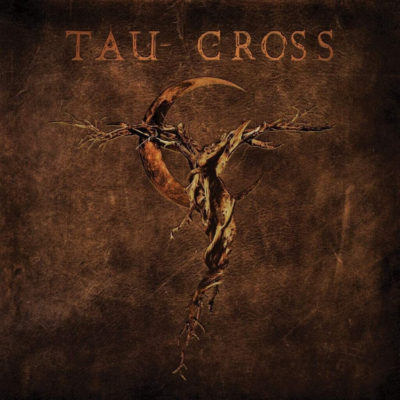
How do you think it fits into your canon of work generally? I’ve seen comments on Facebook and YouTube where people think this music goes back beyond Tau Cross, even beyond the Amebix album you did (Sonic Mass) with Roy Mayorga; Do you feel that sort of historical connection through it, or is it still very much just in the tradition of the first two Tau Cross albums? “That’s very interesting as a question because the very nature of the album changed because of the circumstances. We got into this sort of complacency you get when you’re on quite a big label – you’ve got all of the crew around, everybody’s pushing your stuff. You’re in that bubble. And I think that reflected on the people within the organisation, myself included, and took the edge off what we were doing. I think the reinterpretation of it, to be honest, fused with a lot of frustration, anger, resentment and bitterness… I’ve tried to channel that into a positive force rather than something that is destructive, saying ‘use that as a springboard for revisiting the songs’. The consequence of that has been a completely different trajectory for the album and the music. It’s the same songs essentially; rewritten, injected with a different kind of force. There’s a wilful force that we put into music that is tangible, and you can pick up on that. Even nuances from within the playing of a guitar, drums or particularly in the vocal patterns; you can tell when a person is in a different state of mind, and I hope that comes across. So, is it more like Amebix than Tau Cross? I was hoping that this was kind of going to be a meeting of the primal mysticism of the first album… the first Tau Cross album is unassailable in that its completely unique. There’s something about the energetics of that record that are completely unique. And part of that is me sitting on my own up here on Skye for a year and a half writing songs and trying to get people to be involved. All of a sudden I had an album’s worth of stuff but I still couldn’t find anyone to get involved with it. When I did, the album was already done, already formed. It was the immediate result of the decline of Amebix, which was a shit show, and it was my reaction to that, to try and keep going, using the things I’d learned from Roy Mayorga about how to present yourself properly musically, and how to start writing songs; in contrast Amebix is very primitive stuff. It’s iconic for a lot of people but for me… I’m the person that can’t really listen to it. There’s stuff in there that has got merit, but the production is awful, the song writing leaves a lot to be desired, but it doesn’t matter because it has its place. But its place is historical; it’s back there, it’s a reference point. I was hoping to blend the atmosphere and theatrics of Sonic Mass with the first Tau Cross album, to fuse the two together so there’s a narrative going through there”.
To my mind Messengers of Deception is the biggest sounding record you’ve been involved with. It’s got a huge sound. The guitar tone – huge. As an example, Yaldabaoth, the opening song on the record, is for all intents and purposes, just that. A stock standard, punchy, hit-you-hard album opener. But midway through the track it just hits you how immense the sound is. It’s all encompassing, consuming. I guess as much of the subject matter you are dealing with features big concepts, you need that vastness of those sonics to push home what you’re saying. Do you think you write more expansively now, is it the technology expanding to allow us to make records as we’ve always wanted them to sound at a fraction of the cost? “I write more or less as I always have done, but it was very good to work with different musicians again. If you take a song that has already been written, that’s been through a demo stage, that’s been through an album stage, and say ‘how would you interpret that?’ then that’s an interesting thing in itself. What I had to do again here was to trust people. I’ve always had to do that within a band; I suppose you can be fairly dictatorial but you can only do that so far before becoming the band itself. You need to let a bit of free energy run around to find out how people find their place. The original incarnation of Tau Cross had it’s own original sound because of the type of people playing; this album that changes because the people playing on the album have changed. The guitarist (The Kurgan) is much more of a metal guitarist. I really like that. It’s not really a secret – I’ve always liked my metal. As a punk rocker in the eighties I would sneak into Saxon and Accept shows and get scowled at by the metalheads! My great passion in life musically was to do with metal; punk had that brilliant street-dynamic force about it, but metal allowed me to indulge myself in my more fantastical elements, and to escape from the realities of what was at the time a very austere life. I embraced that fully. So coming back round to somebody who plays metal guitar was like… shit! I’ve only ever been in two bands in my life, Amebix and Tau Cross, and that’s it. With Amebix my brother played guitar, and he’ll be the first to admit we weren’t musicians, we couldn’t play a bloody thing. We didn’t have guitar skills or bass skills, we just somehow made a racket that made sense. Roy Mayorga was and is an absolutely brilliant drummer, but he wasn’t a guitarist, so I’ve never worked with a metal guitarist. I enjoyed it – I like a squealing guitar solo as much as anybody! Guilty pleasures! So that changed the dynamic, but it didn’t necessarily change the song writing. I still approach a song… trying to put little bits in between the gaps. I have a very, very limited musical vocabulary. I don’t really know what I’m doing – hunting in the dark, just going by feel more than anything else. It’s very hands on, feel your way through the music… ‘what would I like to happen here?’”
For me, there is that link between the old and the new. You do get it in the first Tau Cross album… as you say it’s virtually a finished product, then you take it to the people you are collaborating with. This is the same sort of circumstance. Without wanting to become psychoanalytical, there seems to be a far more honest edge to this album, even more so than the first TC album. And there’s a feeling venting – you’re really letting loose on some subjects here – that I haven’t felt in your work for a while. How do you maintain that, within the context of thinking ‘well, I am still on this treadmill, I’m part of this ‘music business’, and I still want to make music that’s going to resonate with people’ – how do you contain that anger and still force it into a sub-six minute song like Babylonian Death Cult that is eminently listenable but still covers all the ground you feel you need to cover? How difficult is that? “To keep that level of intensity within the music?”
And still to keep everything going; because although you say you’re not much of a musician, there is some quite complex stuff going on in these songs isn’t there? I think it’s quite hard to maintain that level of intensity when you are grappling with that level of complexity, whether it be lyrically, whether it be musically. I think that one thing that strikes me most about this album is you never lose that fight. It’s compelling, hard hitting, but also interesting all the way through. “Well, the way that I write is that I have to wait for things to come in. I can’t jump the gun and make things happen. It’s interesting because this always happens – I get caught up in the recording of an album, putting it together, the package, and then, it’s manifest. You’ve made the baby, and the baby has come out – or it’s just about to pop out now! So I can get on with doing something else. It’s literally being freed up from this project that sees me surrounded in this room by guitars because suddenly I’ve got a rush of stuff coming in. I’m writing music again. There’s no lack of things to get ‘motivated’ by, particularly at the moment. The time we’re living in now is choc full of material! But I also want to dig deeper into this vein I’m going into in the new album. It’s also about intent; also authenticity. You can’t just go into some sort of (adopts dopey voice) ‘we’re gonna do a song called Fuck The Police, Man’ and that’ll do. You need to come from a point where you’re anchored inside yourself, inside the song. You need to find a relationship in that. And that’s why music for me is such an important thing. It’s not that I want to form a band that sounds like such-and-such, it’s that I want to be the voice in that music, rather than following somebody else’s voice. That’s imperative. So I don’t find any shortage of energy when I need it, but it might be six months to a year between harvests! (laughs). It sounds pretentious but sometimes the muses don’t drop for you on a given day”.

I’m interested in the aspect you mention of establishing your own voice. Do you think that growing up in the musical scene that you did, that that was perhaps a bit easier? A young metalhead starting his first band is always under pressure it seems to sound like one of the old Gods, or perhaps the du jour favourite new band; in the crust-punk-anarcho scene people really didn’t care about that did they? Far easier to strike ahead with ‘your’ sound without anybody dissing you. “I suppose it was, yes. Metal is very specific and very particular. It’s very self-reflective. It’s guarded as well. A wide Empire but one with very particular rules, which you need to adhere to, to a degree. We never did. Amebix came out of young kids, sixteen, seventeen years old, trying to make sounds that sounded a little bit like, Killing Joke or something like that. Early Sabbath, Motörhead. Trying to do interpretations of that. We made a right mess of that, but the by product was something that seemed to have it’s own originality, so that was great. Joy Division was in there too, and that’s always been something that has fed in to my music, that new wave, Gothic sound. I’ve always really loved that. I suppose I’ve always taken lots and lots of influence from different areas, but not been self-conscious in representing that. So something like Violence of The Lord you can say ‘that’s a Joy Division riff, but it’s meeting lots and lots of metal along the way, and has a good narrative running through it too’.
Well, you mentioned Violence of the Lord there, so I think we’ll move on to the new album in more detail now. In fact, I’d like to go through it track-by-track and extract some thoughts and memories from you about the writing and recording of the record… To kick off, tell us a little bit about track one, Yaldabaoth… “Yaldabaoth is a condensation of the Gnostic cosmological myth. It’s kind of difficult to explain but what the Gnostics are saying is that at the heart of the cosmos is consciousness that is not necessarily reflecting outwards but which is surrounded by other energies which are called Eons, who have negative or positive polarities – male or female – and one of these in the Gnostic cosmology, the female Sofia, projects her consciousness into this arm of the universe, and through an act of will creates consciousness itself, and the Anthropos, which is us as humanity, and also the physical being of the Earth; she is condensed within the Earth, asleep. Dormant and forgotten. It’s like Gaia theory. We have a sentient, living planet. So we are left here as conscious beings trying to find out where we come from and one of the important parts of the Gnostic worldview was that the consequence of Sofia committing this very wilful act without the permission of her partner – the male aspect – was that the scientific experiment itself became slightly warped. The result of that in the laboratory is the incarnation of another entity, which is like a bastard offspring. This entity has an existence and a dominion over this particular corner of the Cosmos, and they saw it as being in parallel with the God of the Old Testament, Yahweh. The Gnostics called this Yaldabaoth; they knew about this thousands of years before the Abrahamic religions came across. They were familiar with it when they started to interact with this deity, who is not necessarily malevolent, but very malevolent when it wants to be, cunning, kind and deceitful and all the rest of it but is not ultimately a God. It’s something else all together and so this is about that great deception. The deception is the field between us and who we really are. Briefly!”
Track two is Hollow Earth. “That’s me indulging myself in the whole Antarctic, Agartha mystery thing. Sparked off by finding out about Admiral Byrd’s expedition to the South Pole just after World War Two hunting for escaped German U-Boats. He went down there with a force of six thousand troops on aircraft carriers, came back with his tail between his legs having been attacked, and everything was hushed up after that. He was saying that they were attacked by aircraft that nobody had any knowledge of ever seeing before, which were faster than anything they could have anticipated. So I started to delve into the mysteries of the inner earth and the relationship between the Ahnenerbe (a German occult think tank set up by Himmler in 1935), Neu-Schwabenland, Queen Maud Land; The Germans were setting up bases in Antarctica in the twenties and thirties; they also went on missions to Tibet to meet the Lamas, where they were invited into the inner sanctums, and told some of the great secrets to do with the Tibetan Lamas and their connection with people that were seen as the great Masters of the Inner Earth by people like (occultist Helena) Blavatsky. Now I’m not saying that empirically that’s a good way to go, but it’s an interesting story that’s still enduring”.
The next track is Burn With Me. “First single from the album. Part of my remit in re-doing the album was that I had a kick in the teeth when we released this as a video single first time around; So I thought the way to complete the circle properly would be to reinterpret that song, make another video and release it as a single… so that there was a momentary pause of a year and five months or whatever but we’re back! And here we are reintroducing the song! There’s a little bit of arrogance in that, but we did it just for the shits and giggles of it really. Burn With Me is the ramblings of a heretic, or rather someone from these islands looking upon a foreign religious cult coming in and subverting or usurping the indigenous wisdom of the people themselves, and paying the price for getting in the way. It’s the tale of the eternal heretic who raises up their hand and says ‘excuse me, I’ve got a question here’ and then gets thrown into the fire for it”.
Next up – Black Cadillac. “Black Cadillac is my attempt at surf rock. A fifties/sixties song about the Men in Black. Whilst the popular idea of the Men In Black is a sort of cartoonish, Hollywood style representation it’s a very real phenomena in UFO and occult groups. When people have experiences they can be contacted by these very menacing figures in the wee hours of the night and told to keep their mouths shut. I’m trying to tie that idea – the men in black – together with abduction phenomena, and how people have to be regressed in some instances in order to retrieve significant instances that have happened in their lives which they have not been able to account for. Missing time and all the rest of it…”
And now we’re back to Violence of The Lord. “I really like that. I’m going on a tangent here but for me the album progresses along. You’ve got rock songs at the front of the album, and then you’ve got this patch where it quietens and down a bit and from when Violence of The Lord – and I like to listen to the album as a whole – it just starts to build, right through to the end which obviously we’ll get to – but Violence of the Lord is a narrative of the supreme authority of religion, it’s utter arrogance and disregard for indigenous peoples and populations and it’s empiric violence as well and how it justifies that. All by saying ‘this is the wIll of the God’. And in one sense it is but maybe it’s the will of the other God, you know?”
The title track is next. “This is my premise really; all the way through the album I’m trying to draw things together and trying to say ‘how did life originate’ and what is the relationship between ourselves and the ‘other’ outside… What about this third party influencing factor in between – the Yaldabaoth, the parasitical infection that is part of our psyche, linked to the Medulla, the Reptillian part of the brain. It’s an implant, and we respond to it. My premise is that through the ages different magicians and seers, Magi and prophets have been contacted by very real entities that are generally speaking outside of our normal range of consciousness or ability to perceive. They are invited, or invite themselves into our perceptions of reality and interact with these people. They bring forward information that can boost a particular area of civilization or an idea in history, or push us in a different direction. It can be very ‘real’ and ‘authentic’ in it’s initial stages, and it always seems to degrade over repeated visits and the message is deceptive. This all inevitably leads to the decline of the practitioner. So you’ll have the madness of (British philosopher and actual Renaissance man) John Dee and Edward Kelley sleeping with each other’s wives at the end of a ridiculous pact that they have with these entities who at the same time had been giving them very real information in the form of dictating the Enochian language whilst simultaneously manifesting as small children and encouraging them to couple with one another’s wives, which in the seventeenth century was an incredibly taboo thing! Obviously something like that will break up the group. You get the same things within UFO groups; a few of them are given prophetic images which they share with the public, who are amazed and ask how they got them… they are given the illusion of being people with real power, the power to receive these images, and then at the ultimate stage of that contact experience they tell the public ‘the aliens are going to arrive’, and they are stood atop a hill, trousers round ankles, waiting… and of course nothing happens. Their life is ruined after that; personally, professionally and in every other manner. It always happens, because these are the messengers of deception. They are always tricking us, always fucking with us. And whilst it would be a great thing to have these experiences I’m sure ultimately they are just fooling around with us as human beings”.

What is their end game if they are doing that? “I think they do it for the hell of it. Its mischief. Its the trickster mythos that you find in every culture. The delight of play, the delight of deceit and the delight of being able to manipulate. And the delight in that, and the delight in the by products of the more malevolent stuff are the emotional secretions of human beings – fear, anger, frustration, lust. All of those things. My thoughts are that these are energies that act as nutrition for these entities. We are food for them, not as physical flesh but emotionally. If we can be tricked and manipulated to give up that food then that’s the ideal situation”.
Following on in a similar fashion is Babylonian Death Cult. “My idea is that the Babylonian exile is where the Talmud seems to have taken shape. It was taken back to the Jewish people in Israel and was very different to the religion they had been used to, viz the Pentateuch and the Torah. I regard Talmudic Judaism as a supremacist Death Cult presided over by Priestcraft and demonic intercession. I believe that the Esoteric traditions were subverted towards an allegiance with extra human forces in the Archontic pantheon, and that rather than the traditional view that the Jews were in captivity in Babylon I believe that they became captive to their own Levitical priesthood subsequent to the introduction of the Talmud, which through the Rabbinical tradition has maintained the apartheid between the Chosen and the Cattle. Christianity dispenses a watered-down version of Judaism to bind the Gentiles to the same stream of Demonic Influences. All roots of the Abrahamic tree are corrupted, despite some glimpses of the older beliefs that managed to survive”.
Interesting stuff, perhaps linked in some way to what you were saying with regards to indigenous religion in Burn With Me? Maybe that’s another discussion for another day. Next up is Drowning the God. “Writing this song two and a half or even two years ago would have seemed like writing a sci-fi piece, But now it’s right in your face, the interface between humans and AI, as is the desire of the big corporations to be able to embrace this as a great idea for our utopian future; Unfortunately it doesn’t look like being Utopian at all, it looks like it requires a massive sacrifice on our part as a general population to take ourselves down to a form where we’re not too much of a nuisance or an annoyance to our Lords and Masters. Being able to shackle us and harness us to AI is deeply desirable, as it means we can be kept under constant surveillance and all of our intimate moments as human beings can be regulated and used for the greater good. We are descending very fast into what I would call a Communo-fascist Technocracy, which is drawing its web around us. Funnily enough it was the web that drew us in, initially, and now we’re able to see the Spider in the middle of it…And this is it – We are drowning the God. We are the God en potencia, and we are being drowned in waves and waves and waves of technological nonsense. The question is do we have any choice left? Do we have the choice to say no, I don’t want to live like this. I want to be left in peace to live with the land. Can I grow my own food? I suspect not”.

The penultimate track is Three Tides. “It’s a bit like a galloping, Iron Maiden riff mixed with some folk. A friend of mine up here on Orkney plays the fiddle, and his mum plays the Nyckelharpa on Sorrow Draws the Plough. It’s just a nice folk tale that I wrote based around a book that I read. Sometimes a sentence leaps out at you. The Book was called A Pirate of Exquisite Mind, about the English pirate and adventurer William Dampier (written by Diana Preston – Ed) who lived in the seventeenth century, and he mentions the practice of criminals being taken down to the Thames, lashed to a stake and left there until they’d been washed for three tides. BOOM! A brilliant image! I stole that one as the beginning of a tale. It’s just a fantasy, but it’s exploring the life of the heretic. A tale of the sea”.
Once again harnessing and indulging your fantastical side by employing an Iron Maiden riff. “(laughing) There we go!”
Last track and, I have to say, my favourite, is Sorrow Draws The Plough. “So many people I’ve talked to have said that. Why is that? I come back to the thing that it’s all natural instruments – nothing synthetic at all. Just a piano. I’ve had this bloody piano tune sitting around for six years on my desktop. I’m always thinking how am I going to use this? And the opportunity arose for this album so I thought ‘I’m just going to build on it, add a little violin, cello, that Nyckelharpa, a Bodhrán drum and a voice. That’s it. But it creates something that’s a real mood changer. It takes you from the high plains of intensity of the album into this epic closer, with it’s orchestral arrangement, which I absolutely love. Again, self-indulgent, but I love it. And again, it’s saying, this is what is real. This is nature. Regarding nature. Getting out of the technical world of deception and manipulation, away from religious perspectives and the dogmatic views that are being inflicted upon us, and saying when you are in times of crisis, when everything becomes too overbearing, take a look at nature and reconnect with the cyclical nature of it. The Seasons. It’s like one of those kiddies’ fables, but it is true: Put the grain in the ground, cover it up, water it and watch it come round. This keeps on happening. It’s this perpetual cycle that I feel, particularly now, we need to reconnect with. We’re getting out of our depth, getting too deeply connected with somebody else’s drama. Things that are happening on the other side of the Atlantic, or the Pacific. We need to scale back and ask how we can recalibrate our own relationship with the planet. Our families, our homes, our cats! Sorrow Draws The Plough reflects that but it also reflects deeply for me at a very visceral level about how I feel about the land that I grew up in. I am very deeply rooted in and connected to the English countryside; and also for the last thirty years to Scotland. Scotland is my spirit and England is my heart. That’s how I’d put it”.
I’m English – possibly that’s why this song resonates with me so much; I think there’s a song on the first album, Sons of the Soul, that has a similar effect. “Exactly. It’s very similar in that context. You are looking out across the landscape and recognising something – recognising this perennial wisdom which is out there and available to anybody at any time. And whilst the activities of the village carry on – people scuttling around, going to and from wars – the Farmer stays at home, maintains his steadfast relationship with the soil. They are related”.
And there we have it- some deep insight into one of 2020’s most remarkable albums. Thanks for taking the time to take us through it blow by blow! Do you think you’ll tour with this iteration of the band when live shows get back up and running? “Well, it’s permission from all angles, isn’t it? I’ve been described now as an Iconoclast. I’ll own that, and say that I’m quite proud of that; I’ve been through a journey in the last year and a half that not many have had to go through, particularly in the music industry, and come back from it. And my point about this is that I won’t apologise about anything I’ve thought or done to anybody. I’ll continue in any way that I’m allowed to continue; and through the attrition that’s come with this there will be fewer and fewer people in the media who will regard what I do but that doesn’t invalidate it. It just means that I will have to return to my roots more. I’m an underground artist, and If I have anything to say that has meaning or import to it then sometimes that’s going to be dangerous. I’m going to step into dangerous territory, and I’m going to keep that spirit alive because without that we’ve got dead art. There’s nothing here at all. It’s just people copying other people. You’ve got to have some spirit, something real, some message in there, and that gives you the energy and power you need to push that stuff across. So the future of Tau Cross… I don’t know, at the moment I’m living one day after the next. I’m coming now to the day when there’s a physical album out. That was a hurdle to overcome. Every time I put something on the internet a small army of Trolls lands on it and having to decide whether to react or don’t react with these people can wear you down. But I’ll keep going in whatever channels are available. I don’t know about touring – I don’t know if anyone will invite us. I think I’d like to. But these things all require a lot of planning. I love playing live, but life goes on. We’ll see”.
Messengers of Deception releases today.


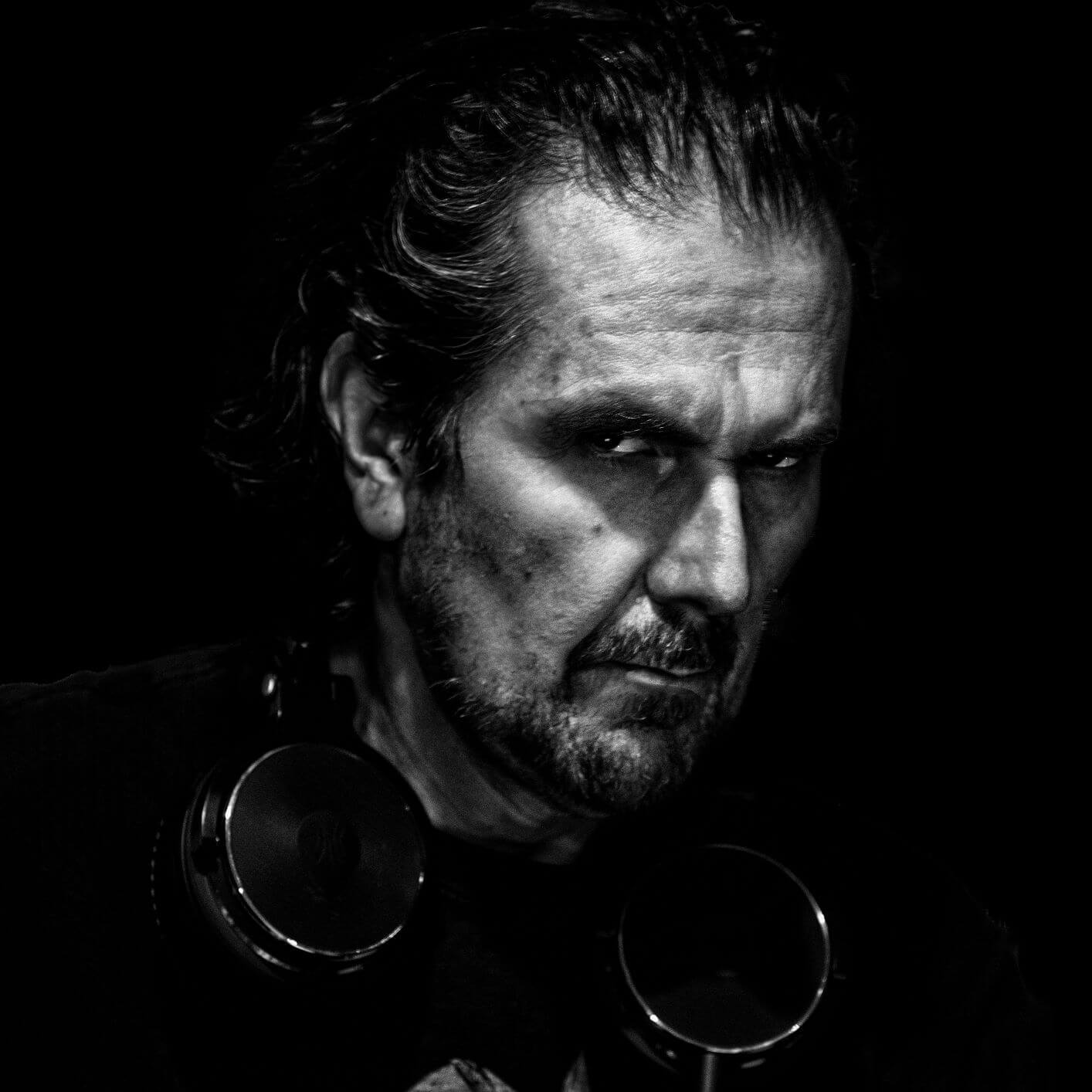
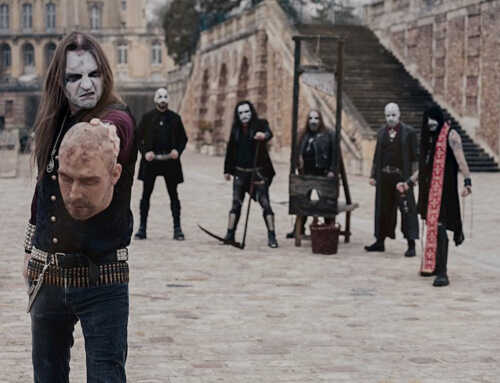
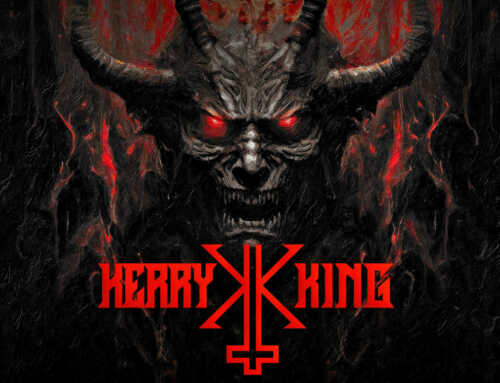
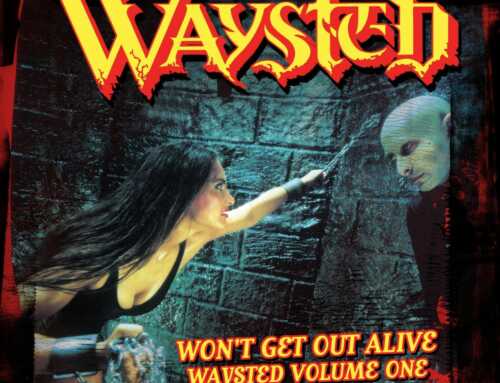
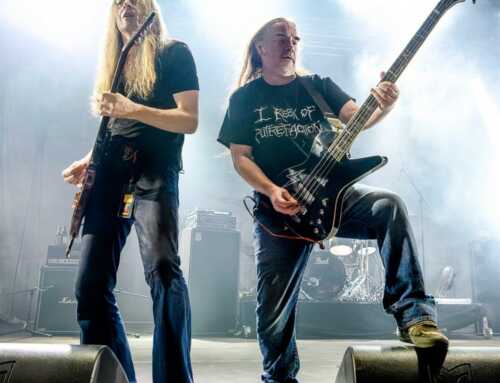
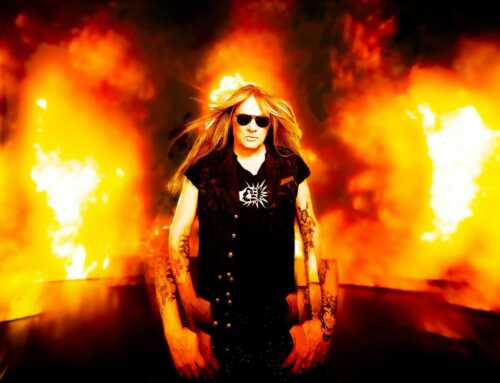
Leave A Comment